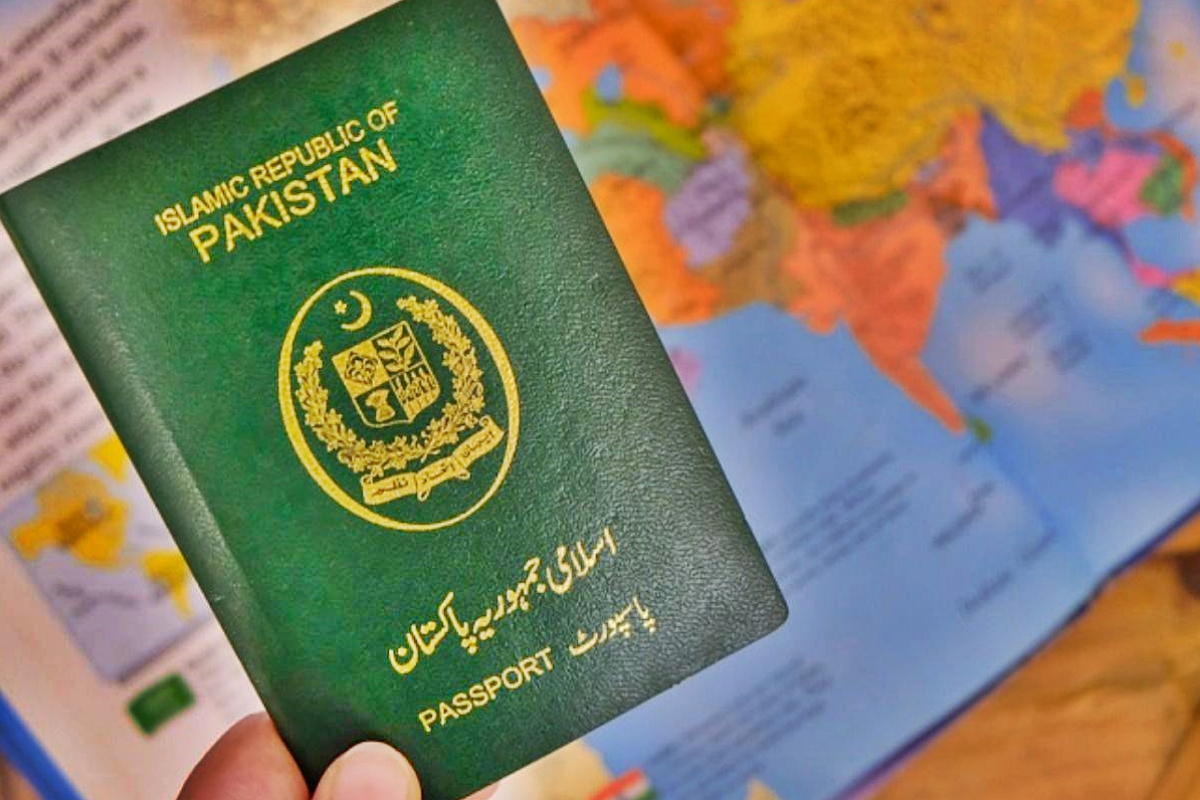- Pakistan’s passport has remained the 4th least powerful globally for 5 years.
- Ranked 101st out of 104, with visa-free access to only 34 countries.
- Austria, Denmark, Ireland, and the Netherlands share 3rd place (192 points).
The Pakistani passport continues to hold the fourth lowest rank globally in the New Year, showing no improvement in its position for at least the past five years, as reported on Thursday.
The passport’s ranking as the fourth least favorable has persisted, aligning with its downward trend since July of the previous year. This information is based on data from Henley and Partners, a UK-based firm specializing in citizenship and residence advisory, which assesses and ranks 199 nations on its index.
According to the Global Mobility Report 2024 from the Henley Passport Index, the country’s passport is positioned at 101st out of 104, scoring 34 points. This implies that individuals holding an ordinary Pakistani passport have visa-free access to only 34 out of the 227 destinations covered in the index.
The ranking is derived from an analysis of approximately 199 passports, assessing the number of countries and territories (destinations) that passport holders can enter without requiring a prior visa. The index relies on data provided by the International Air Transport Association (IATA).
In the current year, the top position for the world’s most powerful passport is held by six countries—France, Germany, Italy, Japan, and Singapore. They jointly claim the first rank on the index with a score of 194. In the 2023 rankings, Singapore and Japan secured the first and second spots, respectively. Notably, for France, Germany, and Italy, attaining the first position marks a substantial two-spot advancement. The previous year, these three countries shared the third spot with four other nations.
There is a three-way tie for the second position, with Finland, South Korea, and Sweden all scoring 193. The third spot is jointly occupied by four countries—Austria, Denmark, Ireland, and the Netherlands—with a score of 192.
Afghanistan maintains its position as the country with the world’s least favorable passport, allowing its citizens visa-free entry to only 28 destinations. Following closely, Syria and Iraq hold the second and third positions as the second- and third-worst passports, offering access to 29 and 31 destinations, respectively.
Even though other South Asian countries have performed better than Pakistan, their overall ranking remains low. Bangladesh ranks 97, with visa-free access to 42 destinations. Sri Lanka is only one spot ahead—at 96 with a score of 45. Nepal comes in at the 98th spot with a score of 40. Only India has performed better in the South Asian region and enjoys the 80th spot with a score of 62.
The Pakistani passport allows visa-free entry solely to the subsequent destinations: Barbados, Burundi, Cambodia, Cape Verde Islands, Comoro Islands, Cook Islands, Djibouti, Dominica, Guinea-Bissau, Haiti, Kenya, Madagascar, Maldives, Micronesia, Montserrat, Mozambique, Nepal, Niue, Palau Islands, Qatar, Rwanda, Samoa, Senegal, Seychelles, Sierra Leone, Somalia, Sri Lanka, St Vincent and the Grenadines, Timor-Leste, Togo, Trinidad and Tobago, Tuvalu, and Vanuatu.
In a released statement, Henley and Partners Chairperson Dr. Christian H. Kaelin mentioned that, “while the overall trend over the 19-year history of the ranking has been towards increased travel freedom, the gap in global mobility between the highest and lowest positions on the index has reached its widest point.”
“The average number of destinations travelers are able to access visa-free has nearly doubled from 58 in 2006 to 111 in 2024,” he adds. This means that “the top-ranked countries are now able to travel to a staggering 166 more destinations visa-free than Afghanistan, which sits at the bottom of the ranking with access to just 28 countries without a visa.”
[embedpost slug=”/school-winter-vacations-in-punjab-check-the-latest-update-on-extended-holidays/”]
Experts also highlight the increasing reliance on technology for travel-related activities. Frederic Leger, Senior Vice President of Commercial Products and Services at IATA, emphasizes that “with passenger traffic set to double by 2040, the optimization and enhancement of airport processes will need to continue. Checking and verifying travel documents needs to be automated to a much higher degree. Passengers have clearly communicated that they are willing to share their data in advance of travel to achieve this goal.”
















